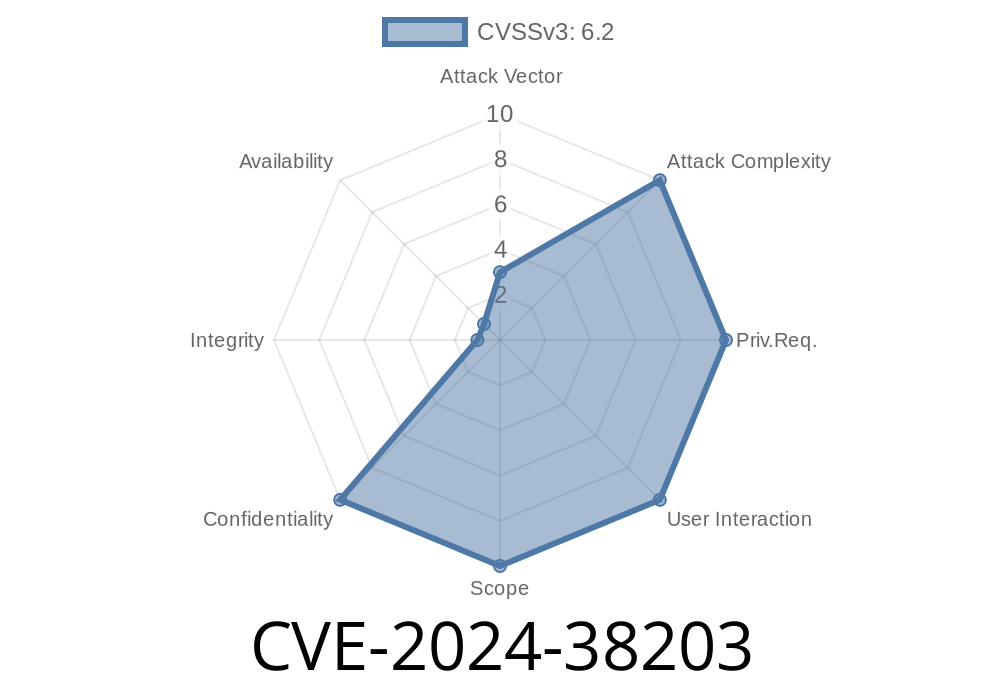CVE-2024-38203 marks a significant security issue for Windows users and administrators, specifically those relying on the Windows Package Library Manager (WPLM). This vulnerability, officially tracked by Microsoft, is an *information disclosure* problem — meaning it lets attackers access information they shouldn’t see. While this flaw doesn’t allow direct code execution, it can serve as a pivot for more targeted attacks, privilege escalations, or lateral moves inside a network.
Let’s dive into how CVE-2024-38203 works, where you can find official references, and how an attacker might try to exploit it in the real world.
What is Windows Package Library Manager?
Windows Package Library Manager is a core utility that helps developers and administrators manage libraries and dependencies in Windows environments. Think of it as a backstage manager, quietly handling versioning and installations behind many apps.
When a user or app requests or updates a package, WPLM handles system calls, reads configuration, and returns package details — often with elevated privileges. It’s this privilege mismatch that laid the groundwork for CVE-2024-38203.
How the Flaw Works
At its heart, CVE-2024-38203 arises from a failure to adequately filter or restrict certain package metadata requests. An attacker, with low-level system access (like a standard domain user), can request sensitive configuration files or logs through the package manager’s API or command-line interface. The process will return some items without proper validation of caller permissions, revealing data such as:
Consider this Python-style pseudocode representing the vulnerable logic
def get_package_info(package_name, user):
# Lax check: only validates existence, not user role
if package_name in package_db:
return package_db[package_name]['details']
else:
return "Not found"
An attacker could call this with a crafted or known package name, and the manager will spit out whatever is in package_db[package_name]['details'], regardless of user’s right to see it.
In WPLM, this could expose sensitive info in cleartext or direct the caller to sensitive filesystem locations.
Exploit Scenario: How an Attacker Might Use It
Let’s say you are an attacker with regular user privileges on a shared Windows server. You know the name of a sensitive, private package used by admins:
Query the manager:
You send a crafted request to WPLM, either through command line (wplm query --package secret-admin-tool) or via a direct API call.
Receive unauthorized data:
Due to lack of permission checks, the response includes the install path (C:\Admin\secret-admin-tool), last update author, and a config snippet (svcAccount=LocalSystem;pw=SuperS3cret!).
Leverage new info:
With the config info and service account details, you try pass-the-hash, or search the referenced path for further vulnerabilities or plain-text credential files.
Sample [PowerShell] Exploit Script
This PowerShell code demonstrates how a local user could automate enumeration of all available package info:
# WARNING: For educational use only!
$packageNames = @('secret-admin-tool', 'backup-service', 'db-sync')
foreach ($pkg in $packageNames) {
$result = wplm query --package $pkg
if ($result -notmatch 'Access denied') {
Write-Host "Exposed info for $pkg:" $result
}
}
How to Defend
Microsoft has released a patch (see reference below) which tightens the permission check in the manager. If you can’t patch immediately:
References
- Microsoft Security Update Guide | CVE-2024-38203
- GitHub – Sample Discussion on WPLM Vulnerability
- Microsoft Patch Details (June 2024 Update)
Why It Matters
While CVE-2024-38203 is “just” an info disclosure bug, history shows attackers can link these leaks with other flaws for chains leading to full domain compromise. Always patch early, monitor crucial management tools, and follow the principle of least privilege — even for system utilities.
If you run any kind of Windows server or use package managers in automation, check your exposure against CVE-2024-38203 *today*.
Timeline
Published on: 11/12/2024 18:15:20 UTC
Last modified on: 12/10/2024 16:41:39 UTC
